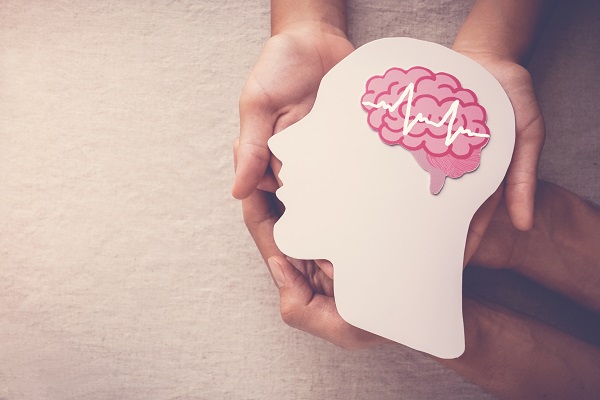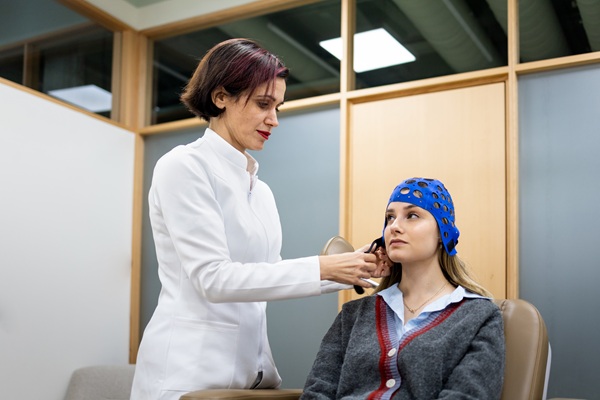Seeing a Psychiatrist for Adult ADHD Treatment

Adult ADHD treatment can significantly improve the quality of your life. Read on to learn how this common disorder is addressed. Attention deficit-hyperactivity disorder (ADHD) is one of the most common neurodevelopment disorders. It often starts during childhood and continues into adulthood. People with the condition might exhibit impulsive behaviors, have excessive energy, or have difficulty concentrating.
Some difficulty with concentration or controlling one's behavior is not abnormal during childhood, but most people outgrow the symptom. However, people with ADHD do not. These difficulties often worsen with time. Some of the symptoms people who need adult ADHD treatment exhibit include:
- Excessive daydreaming
- Forgetfulness
- Constant fidgeting
- Talking excessively
- Often making unnecessary and careless mistakes
- Difficulties resisting temptation
- Difficulty getting along with others
Getting adult ADHD treatment from a psychiatrist
Psychiatrists carefully diagnose patients suspected to have ADHD since some other mental health disorders like post-traumatic stress disorder (PTSD), depression, and bipolar disorder mimic some of its symptoms. Substance abuse issues also share similar symptoms with ADHD.
Diagnosing patients typically starts with an extensive interview and going over the patient’s medical and psychiatric history. The psychiatrist might also interview someone close to the patient, like a spouse, for collateral information. The patient is then screened for mood disorders, anxiety, and substance abuse disorders. The ADHD self-report scale is often used while making a diagnosis.
In some cases, the psychiatrist might order lab tests to rule out the possibility of the patient’s symptoms being caused by a medical condition like hyperthyroidism. Some of the treatment options that might be recommended include:
Talk therapy and behavior modification
Talk therapy is an effective way to address ADHD. It can be used to help patients with their organizational, prioritizing, problem-solving, and time management skills. The psychiatrist also talks to the patient about problems their condition has caused, like difficulty maintaining relationships, self-esteem issues, and social failures. Group therapy might also be recommended, so the patient has a support system with people dealing with similar problems.
Medication
Medication is often recommended for patients with moderate to severe ADHD. These drugs help improve the patient’s brain chemistry, reducing their symptoms. The two main types of medication used to treat ADHD are stimulants and non-stimulants.
Non-stimulants are typically prescribed for patients who are reluctant to treat their condition with stimulants. Many of these drugs work by increasing norepinephrine and dopamine levels in the brain, reducing the symptoms of ADHD. The two main types of stimulants used to treat ADHD are:
- Methylphenidate: These drugs work by inhibiting the reuptake of norepinephrine and dopamine, thereby increasing their levels in the brain. Side effects associated with these drugs include abdominal discomfort, insomnia, and a loss of appetite
- Amphetamine: These drugs directly stimulate the release of norepinephrine and dopamine while inhibiting their reuptake. These drugs come with similar side effects to methylphenidate
Take care of your mental health
Stop by our Columbia clinic for a diagnosis if you regularly deal with symptoms of ADHD. Getting the condition under control with adult ADHD treatment will significantly improve your life.
Get more information here: https://futurepsychsolutions.com or call Future Psych Solutions at (803) 335-5232
Check out what others are saying about our services on Yelp: Adult ADHD Treatment in Columbia, SC.
Recent Posts
Mental health plays a critical role in overall well-being, influencing thought patterns, emotional stability, and behavior. For those experiencing persistent challenges, a formal diagnosis can provide clarity and a structured approach to healing. With guidance from a psychiatrist, individuals can better understand their condition and begin a path toward long-term mental wellness.A mental health diagnosis…
Are you looking for a TMS doctor? A TMS doctor is one that offers Transcranial magnetic stimulation to treat patients with major depressive disorder, which is also called MDD or clinical depression. Every TMS doctor utilizes their own method of treatment and many practices under other titles such as that of a psychiatrist. Learning more…
Post-traumatic stress disorder (PTSD) is a mental health condition that can develop after experiencing or witnessing a traumatic event. PTSD treatment aims to reduce symptoms and help people function better in their daily lives. It also focuses on improving their overall health and well-being. PTSD often causes anxiety, flashbacks, and emotional distress, making effective treatment…
Everyone experiences occasional anxiety, but an anxiety disorder involves persistent, excessive worry and physical symptoms that can disrupt daily routines, relationships, and overall well-being. If left untreated, these symptoms can intensify, impacting mental and physical health. Seeking help from a psychiatrist can be a significant first step toward effectively managing anxiety disorder symptoms and getting…


